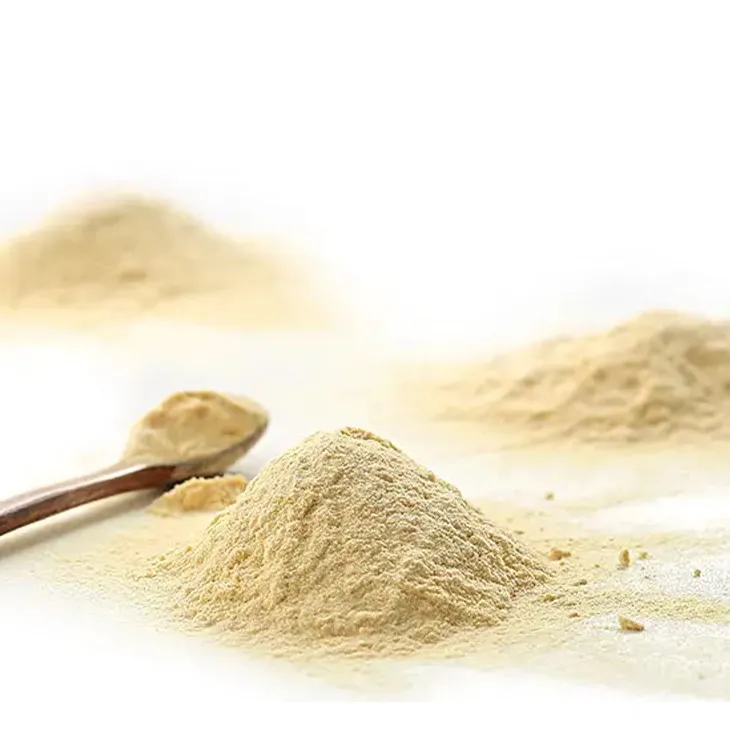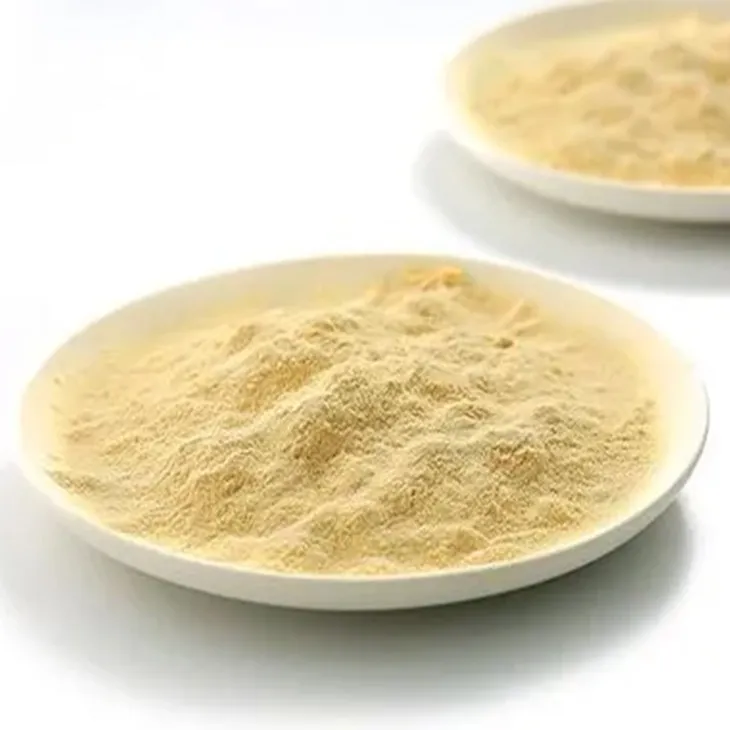- 0086-571-85302990
- sales@greenskybio.com
Active ingredients in selenium yeast.
2024-11-28

Introduction to Selenium yeast
Selenium yeast is a significant source of selenium, which has drawn increasing attention in recent years due to its various health - related benefits. It is a complex substance containing multiple active ingredients that play diverse roles in the human body.

The Primary Active Ingredient: Selenomethionine
Selenomethionine is the most important active ingredient in Selenium yeast. As an organic selenium compound, it offers several advantages over inorganic forms of selenium. Selenium yeast provides a convenient means to supplement selenium in the form of selenomethionine. This form is easily assimilated by the body and is readily incorporated into the body's metabolic pathways.
Role in Selenoprotein Formation
In the body, selenomethionine is actively involved in the formation of selenoproteins. Selenoproteins are a unique class of proteins that contain selenium in the form of selenocysteine. These proteins are essential for a wide range of biological functions. For example, they play a crucial role in redox regulation within cells.
Function as Antioxidant Enzymes
Many selenoproteins act as antioxidant enzymes. One such enzyme is thioredoxin reductase. Thioredoxin reductase, which contains selenomethionine - derived selenium, helps in maintaining the cellular redox balance. By participating in redox reactions, these antioxidant enzymes protect cells from oxidative damage caused by free radicals. Oxidative stress has been associated with numerous diseases, including cancer, neurodegenerative disorders, and cardiovascular diseases. Thus, the antioxidant properties of selenoproteins are of great significance for overall health.

Role in Male Fertility
Selenium is an essential element for male fertility. The active ingredients in selenium yeast, particularly selenomethionine, are thought to contribute to normal spermatogenesis and sperm motility.
Importance in Sperm Development
During sperm development, selenium is required for the proper formation of sperm cells. It is involved in various biochemical processes within the testes. Deficiency of selenium can lead to abnormal sperm morphology and reduced sperm motility, which can ultimately affect male fertility.
Support for Sperm Function
Once formed, sperm cells also rely on selenium for their proper function. Selenium - containing proteins in sperm may be involved in energy production, membrane integrity, and the ability of sperm to fertilize an egg. Therefore, ensuring an adequate intake of selenium through sources like selenium yeast may be beneficial for male reproductive health.
Contribution to Cardiovascular Health
The active components of selenium yeast may also play a role in cardiovascular health. One of the ways in which they may exert their influence is through lipid metabolism.
Impact on Lipid Metabolism
Selenium has been shown to interact with enzymes involved in lipid metabolism. For example, it may affect the activity of enzymes that regulate cholesterol synthesis or breakdown. By influencing lipid metabolism, selenium yeast may help in maintaining healthy lipid levels in the blood, which is crucial for reducing the risk of cardiovascular diseases such as atherosclerosis.
Other Potential Cardiovascular Benefits
In addition to its effects on lipid metabolism, selenium may also have other beneficial effects on the cardiovascular system. It may help in reducing inflammation within blood vessels, improving endothelial function, and preventing platelet aggregation. These effects, although not fully understood, suggest that selenium yeast could be a potential supplement for cardiovascular health.
Conclusion
In conclusion, selenium yeast contains active ingredients, with selenomethionine being the primary one, that have diverse and important biological functions. These functions range from participating in selenoprotein formation and redox regulation to contributing to male fertility and cardiovascular health. However, while selenium yeast shows great potential in promoting health, it is important to note that excessive selenium intake can also be harmful. Therefore, proper dosage and supplementation should be guided by scientific research and medical advice.
FAQ:
What is the main active ingredient in selenium yeast?
The main active ingredient in selenium yeast is selenomethionine, which is an organic selenium compound.
How does selenomethionine from selenium yeast get incorporated into the body?
Selenomethionine from selenium yeast is readily incorporated into the body's metabolic pathways.
What role do selenoproteins formed by the active ingredient of selenium yeast play?
The selenoproteins formed by the active ingredient (selenomethionine) of selenium yeast are crucial for redox regulation. For example, some act as antioxidant enzymes like thioredoxin reductase, which helps in maintaining the cellular redox balance.
How can the active ingredients in selenium yeast affect male fertility?
Selenium is necessary for sperm development and function. The active ingredients in selenium yeast may contribute to normal spermatogenesis and sperm motility, thus playing a role in male fertility.
What is the relationship between the active components of selenium yeast and cardiovascular health?
The active components of selenium yeast may play a role in cardiovascular health by influencing lipid metabolism.
Related literature
- Selenium Yeast: A Promising Source of Selenium for Health"
- "The Role of Selenium and Selenoproteins in Health and Disease"
- "Selenium Yeast: Bioavailability and Health Benefits"
- ▶ Hesperidin
- ▶ Citrus Bioflavonoids
- ▶ Plant Extract
- ▶ lycopene
- ▶ Diosmin
- ▶ Grape seed extract
- ▶ Sea buckthorn Juice Powder
- ▶ Fruit Juice Powder
- ▶ Hops Extract
- ▶ Artichoke Extract
- ▶ Mushroom extract
- ▶ Astaxanthin
- ▶ Green Tea Extract
- ▶ Curcumin
- ▶ Horse Chestnut Extract
- ▶ Other Product
- ▶ Boswellia Serrata Extract
- ▶ Resveratrol
- ▶ Marigold Extract
- ▶ Grape Leaf Extract
- ▶ New Product
- ▶ Aminolevulinic acid
- ▶ Cranberry Extract
- ▶ Red Yeast Rice
- ▶ Red Wine Extract
-
Chasteberry Extract
2024-11-28
-
Hawthorn Extract
2024-11-28
-
Motherwort Extract
2024-11-28
-
Alfalfa Meal
2024-11-28
-
Chaste Berry Extract
2024-11-28
-
Lavender Extract
2024-11-28
-
Bilberry Extract
2024-11-28
-
Cat Claw Extract
2024-11-28
-
Licorice Root Extract Powder
2024-11-28
-
Garcinia Cambogia Extract
2024-11-28





















